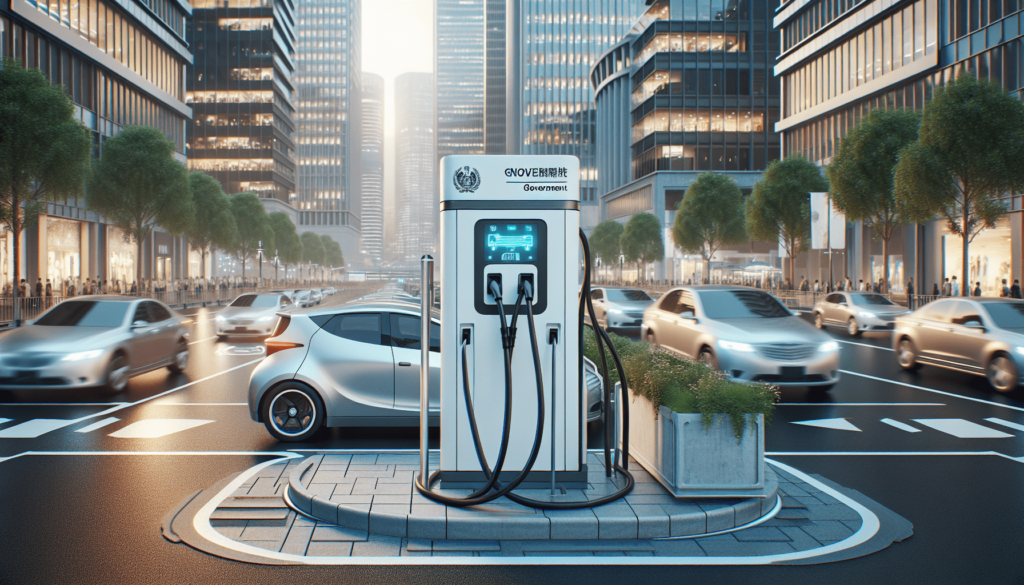Welcome to an exploration of the government’s stance on EV charging fees. As electric vehicles become more popular, questions arise about how the government will regulate the cost of charging. Understanding the government’s perspective on this issue is crucial for both current and future EV owners. So, what exactly is the government’s stance on EV charging fees? Let’s dive in and find out. What Is The Government’s Stance On EV Charging Fees?
What is the government’s stance on EV charging fees? Have you ever wondered how these fees are regulated and what the guidelines are for charging electric vehicles? In this article, we will delve into the government’s policies and regulations regarding EV charging fees. Let’s explore the current landscape and what this means for drivers like you.

Regulations on EV Charging Fees
When it comes to EV charging fees, the government plays a crucial role in regulating and overseeing pricing structures. Various policies and guidelines are in place to ensure transparency, fairness, and accessibility for electric vehicle owners. Let’s take a closer look at some of the key regulations that govern EV charging fees.
Federal Regulations
At the federal level, the government has set standards and guidelines for EV charging fees to promote sustainability and encourage the adoption of electric vehicles. The Department of Energy (DOE) and Environmental Protection Agency (EPA) are among the regulatory bodies that oversee EV charging infrastructure and pricing.
State Regulations
In addition to federal regulations, individual states also have their own policies and guidelines for EV charging fees. Some states have implemented pricing regulations to prevent price gouging and ensure affordable charging options for electric vehicle owners.
Local Regulations
At the local level, city and municipal governments may have specific regulations in place regarding EV charging fees. These regulations can vary widely depending on the region, so it’s essential to check with local authorities for the most up-to-date information on pricing structures.
Types of EV Charging Fees
There are different types of EV charging fees that electric vehicle owners may encounter when charging their vehicles. Understanding the various fee structures can help you make informed decisions about where and how to charge your electric vehicle.
Time-Based Fees
One common type of EV charging fee is time-based pricing, where drivers pay a set rate for the amount of time their vehicle is plugged in and charging. Time-based fees are typically used at public charging stations and can vary depending on the location and provider.
Energy-Based Fees
Energy-based fees are another type of charging fee that is calculated based on the amount of electricity used to charge an electric vehicle. Drivers pay for the kilowatt-hours (kWh) of electricity consumed during the charging session, similar to how residential electricity bills are calculated.
Membership Fees
Some charging networks and providers may require drivers to pay a membership fee to access their charging stations. Membership fees can provide benefits such as discounted charging rates or exclusive access to certain locations, but it’s essential to consider the overall cost and value of joining a particular network.
Connection Fees
In addition to time-based and energy-based fees, some charging stations may also have connection fees that drivers must pay to initiate a charging session. Connection fees are a one-time charge that covers the cost of connecting the vehicle to the charging station and may vary depending on the provider.

Government Incentives and Rebates
To encourage the adoption of electric vehicles and support the development of EV charging infrastructure, the government offers various incentives and rebates to electric vehicle owners. These incentives can help offset the cost of charging fees and make electric vehicles more affordable for consumers.
Federal Tax Credits
One of the most significant incentives for electric vehicle owners is the federal tax credit for the purchase of an electric vehicle. Qualified buyers can receive a tax credit of up to $7,500, depending on the battery size and vehicle’s range. This tax credit can help offset the cost of EV charging fees and make owning an electric vehicle more cost-effective.
State Rebates
Many states also offer rebates and incentives for electric vehicle owners, such as rebates for the installation of home charging stations or discounts on public charging fees. These state-level incentives can vary widely, so it’s essential to check with your state’s department of transportation or energy for more information on available rebates and programs.
Utility Programs
Some utility companies offer special programs and incentives for electric vehicle owners, such as discounted electricity rates during off-peak hours or rebate programs for installing a home charging station. These utility programs can help reduce the overall cost of charging an electric vehicle and make it more affordable for consumers.

Future Outlook
As technology continues to evolve, the government’s stance on EV charging fees is likely to adapt to meet the changing needs of electric vehicle owners. New innovations in charging infrastructure, such as faster charging capabilities and wireless charging technology, could impact how EV charging fees are structured and regulated in the future.
Policy Updates
The government is continuously reviewing and updating its policies and regulations surrounding EV charging fees to address emerging challenges and opportunities in the electric vehicle market. Stay informed about any new policy developments that may impact charging fees and incentives for electric vehicle owners.
Infrastructure Expansion
As demand for electric vehicles grows, government agencies are working to expand EV charging infrastructure to meet the needs of drivers across the country. Increased investment in charging stations and fast-charging networks can help reduce charging times, lower costs, and improve overall accessibility for electric vehicle owners.
In conclusion, the government’s stance on EV charging fees is an essential factor in the adoption and growth of electric vehicles. By understanding the regulations, fee structures, and incentives available to electric vehicle owners, you can make informed decisions about charging your electric vehicle and contribute to a more sustainable future. Stay informed about the latest developments in EV charging policies and take advantage of available incentives to maximize the benefits of owning an electric vehicle.


